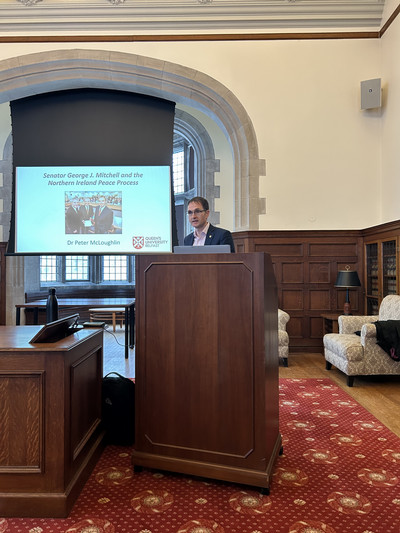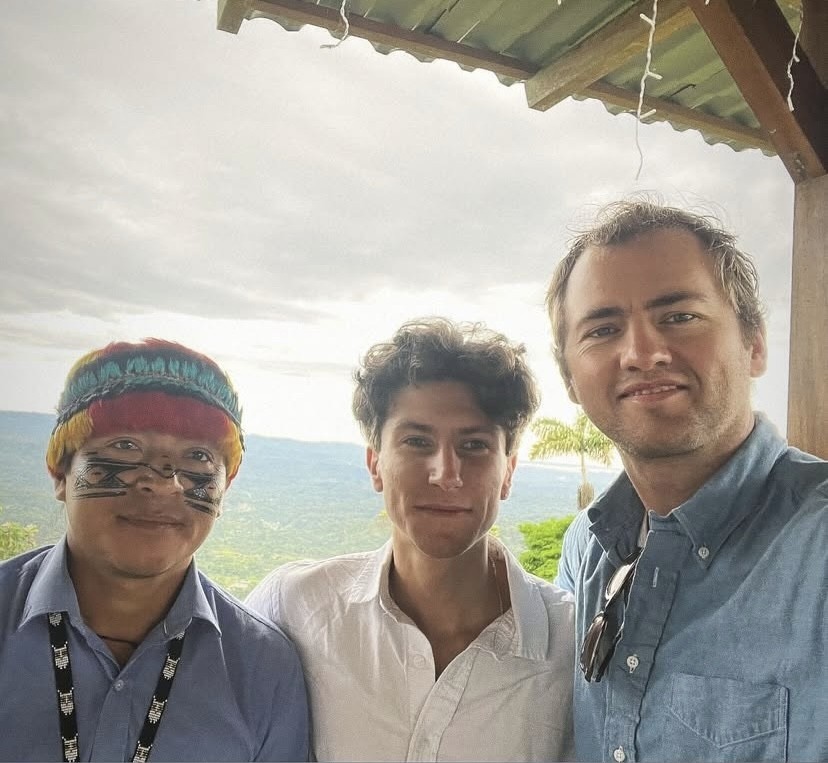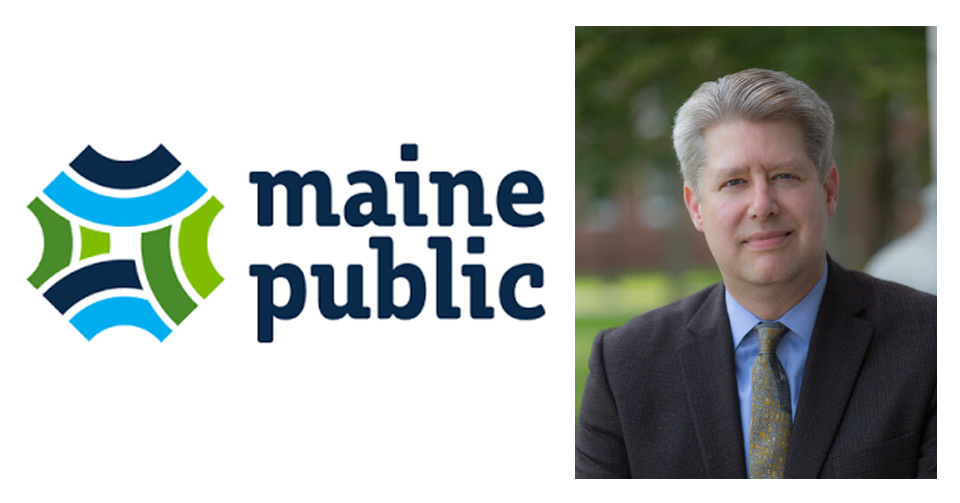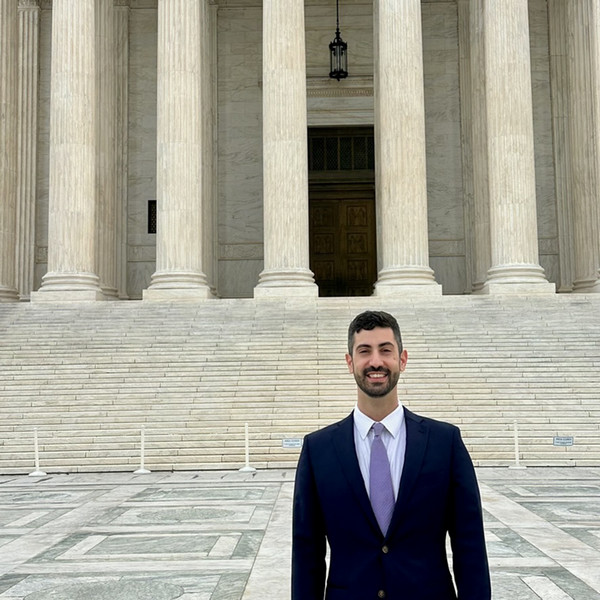Former Attorney General Eric Holder Covers Multiple Issues in Webinar
By Tom PorterSystemic racism, police accountability, the Supreme Court, congressional oversight, and, of course, the upcoming election. These were some of the subjects tackled by former Attorney General Eric Holder in a town hall with the Bowdoin community. The October 1 event was moderated by Assistant Professor of Government Maron Sorensen.
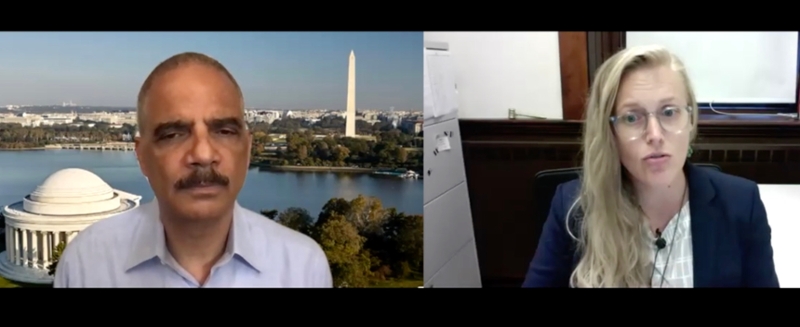
From 2009 until 2015 Holder served as the nation’s top lawyer under President Barack Obama. Although appointed by the president and part of the presidential cabinet, Holder said it is important for the AG to remember he is “the lawyer for the people, not the lawyer for the president….The power of the AG is awesome,” he continued, “and has to be used in a neutral and nonpartisan way.” Holder recalled that his own relationship with Obama, who is a personal friend, at times became “stilted due to decisions I made independently that I did not inform him about.”
Holder has some concerns over the recent developments at the US Department of Justice, he said, commenting that the power of the department has almost been “weaponized” under the Donald Trump administration and used against perceived opponents of the president. Sorenson also asked about the issue of oversight, pointing out that President Trump has so far fired five inspectors general. It is the job of inspectors general to point out the failures of the president, said Holder, and the fact that Trump has dismissed a number of them suggests “a need to think about ways to increase the protections they have.” He expressed concern over “the failure of Congress to engage in robust oversight.”
Regarding the Breonna Taylor case, Holder welcomed the impending release of grand jury documents relating to the fatal police shooting of the twenty-six year-old African American woman in her own apartment in March. However, he warned that this is likely to be a tough case. There is clearly systemic racism in the justice system, he said, and we need to be honest about the impact of race in that system. “Even people of color have biases,” observed Holder. “If we can address these issues and make race-sensitive policies,” he added, “we would be in a better place. But this requires societal questions, and that’s tough.”
Holder, whose brother was a police officer, welcomed the idea of adjusting qualified immunity for police officers to make them more accountable for their actions. However, he also stressed they should have some degree of protection under the law. “Police officers have tough jobs,” he said. “They’ve got to make split-second decisions.”
"The power of the AG is awesome and has to be used in a neutral and nonpartisan way.”
On the recent presidential debate, Holder cast serious doubt on President Trump’s claim about the reliability of mail-in ballots. “He’s essentially trying to delegitimize the election,” he said of the president. “Mail-in voting,” he said, “has been used in states around the country for a good number of years.” For example, in Oregon, he explained, that’s the only way you can vote, while Florida, where President Trump is registered, also uses mail-in voting to a large extent. “There’s no indication that mail-in voting has resulted in widespread voter fraud.”
On the Supreme Court situation, where the Trump administration is in the process of confirming Judge Amy Coney Barrett to the Supreme Court bench weeks before an election, Holder said “there has to be a response.” He described the impending move as an inappropriate use of power. A short-term response, he said, could be expanding the size of the Court by adding a couple more justices. In the long-term, Holder suggested depoliticizing the situation by giving Supreme Court justices eighteen-year terms rather than life terms. He also recommended allowing presidents to appoint two justices during their term, in their first and third years.
Holder ended the town hall on a note of optimism, when asked why students should consider a career in public service. We should all think of ourselves as public servants and “think of ways that we can enhance our civic engagement,” he said. “The problems that we face are man-made in nature, and therefore they’re susceptible to man-made and woman-made solutions.” Holder also expressed cautious optimism that the current moment of what he called “racial awakening” will turn into a real movement and a herald a “new progressive era.”
In 2014, TIME magazine named Eric Holder to its list of the “100 Most Influential People,” stating that he “worked tirelessly to ensure equal justice.”
